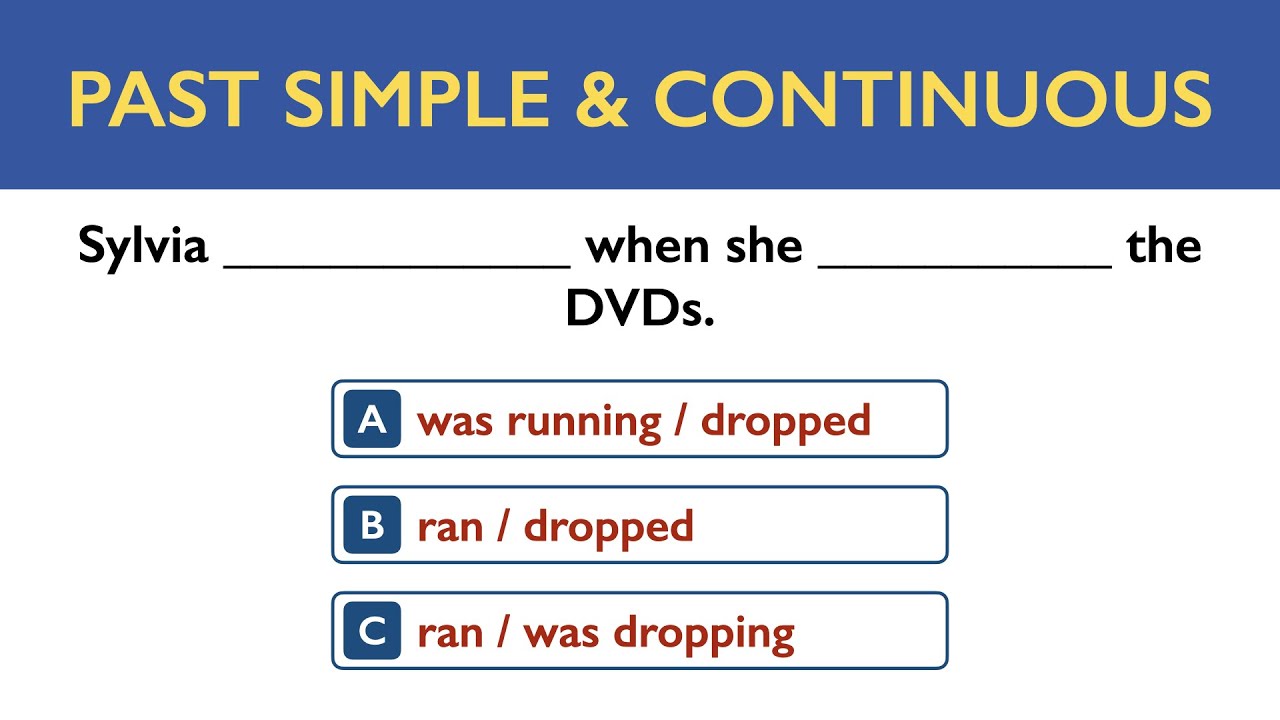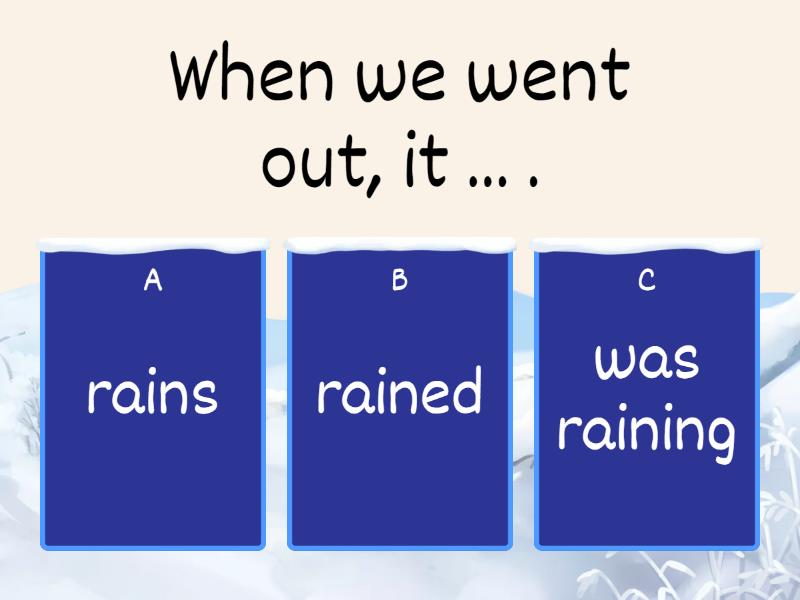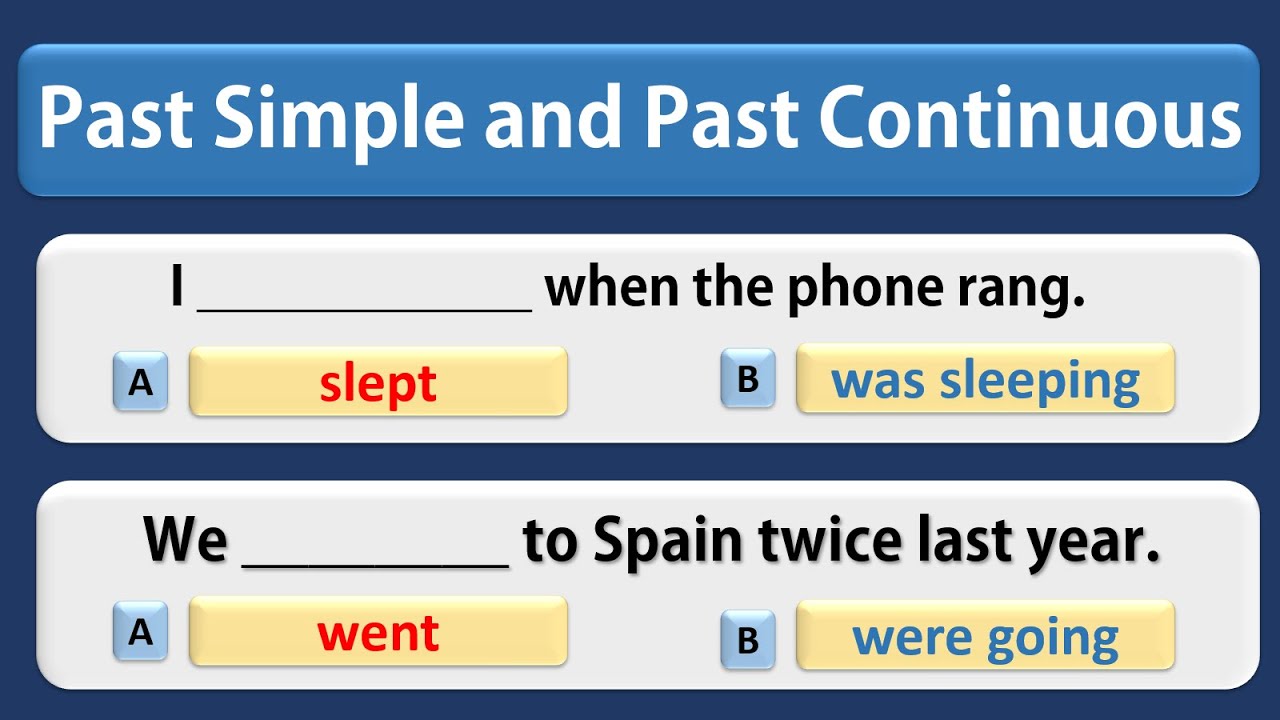Hi there! Let's tackle Past Simple and Past Continuous. It might seem tricky, but we'll break it down step-by-step. Think of it as solving a puzzle. You'll get it!
What is Past Simple?
Past Simple is used for completed actions in the past. The action started and finished in the past. There's no connection to the present. We know when it happened.
Let's consider an example. "I watched a movie yesterday." The action of watching the movie is complete. It happened yesterday. It's done.
Formation is usually easy. For regular verbs, add "-ed" to the base form. For example, walk becomes walked. However, there are irregular verbs. These have special forms you need to memorize. Think go which becomes went, or eat becoming ate. You'll get used to them with practice.
Let's see more examples. "She visited her grandmother last week." "They played football in the park." "He studied for the exam." All these actions are completed in the past.
How to Form Past Simple:
Regular verbs: base form + -ed (e.g., played, walked, watched). Remember to double the last letter in some cases, such as stopped (stop+p+ed). Irregular verbs: You need to learn these (e.g., went, ate, saw). There are lists available online and in textbooks.
To create negative sentences, use "did not" (didn't) + base form of the verb. For instance, "I didn't watch a movie." "She didn't visit her grandmother." Remember to always use the base form, even if the original sentence was in past simple.
For questions, use "Did" + subject + base form of the verb. For example, "Did you watch a movie?" "Did she visit her grandmother?" The same rule about the base form applies here.
What is Past Continuous?
Past Continuous describes an action that was in progress at a specific time in the past. It emphasizes the duration of the action. It tells us what someone was doing at a particular moment. The action began before that time, and probably continued after it.
Imagine this: "I was watching a movie at 8 pm last night." This tells us that at 8 pm, the action of watching the movie was ongoing. It wasn't a single, completed action like in Past Simple.
The formation is using was/were + the present participle (verb + -ing). "I/He/She/It was studying." "You/We/They were playing." This helps create the continuous aspect.
Consider more examples: "She was reading a book when I arrived." "They were playing football while it was raining." "He was working on his computer all day." These describe actions in progress during a specific time or when something else happened.
How to Form Past Continuous:
Affirmative: was/were + verb + -ing (e.g., was playing, were walking, was watching). Negative: was not/were not (wasn't/weren't) + verb + -ing (e.g., wasn't playing, weren't walking). Interrogative: Was/Were + subject + verb + -ing? (e.g., Was he playing?, Were they walking?).
Past Simple vs. Past Continuous
The key difference lies in their focus. Past Simple focuses on completed actions. Past Continuous focuses on actions in progress.
Often, they are used together to show an action interrupting another. The Past Continuous describes the background action. The Past Simple describes the interrupting action.
For example, "I was watching TV when the phone rang." "Watching TV" was in progress (Past Continuous). "The phone rang" interrupted it (Past Simple).
Let's analyze another scenario. "She was cooking dinner when her friend arrived." Cooking dinner was ongoing. Her friend's arrival interrupted it. "They were playing video games when their mom called them for dinner". They were in the middle of gaming when mom appeared.
Consider time expressions. Past Simple often uses time expressions like yesterday, last week, ago, in 2010. Past Continuous often uses time expressions like while, as, when, at 8 pm, all day.
Here is a table to help to summarize:
| Tense | Use | Example | Time Expressions |
|---|---|---|---|
| Past Simple | Completed action in the past | I watched a movie yesterday. | yesterday, last week, ago, in 2010 |
| Past Continuous | Action in progress in the past | I was watching TV at 8 pm. | while, as, when, at 8 pm, all day |
Putting It All Together: Quiz Time!
Now, let's try a few examples. Think carefully about the context. Decide whether the action is completed or in progress. Choose the correct tense.
1. I ______ (walk) to school when I ______ (see) my friend. Think about what was happening in the background and the interrupting event. So, I was walking to school when I saw my friend.
2. She ______ (study) all day yesterday. Consider whether it was ongoing activity that occupied all day yesterday. So the answer is she was studying all day yesterday.
3. They ______ (play) football last Sunday. It is a one time completed action on Sunday last week. They played football last Sunday.
4. While he ______ (cook) dinner, she ______ (set) the table. Think about these as simultaneous actions in progress. While he was cooking dinner, she was setting the table.
5. We ______ (not go) to the party last night. Consider if we did not perform an action of going to the party yesterday. We didn't go to the party last night.
By looking at these scenarios, you will understand when to use the correct tense.
Tips for Success
Practice, practice, practice. The more you practice, the better you'll get. Use online resources. Work through exercises. Write your own sentences.
Pay attention to time expressions. They are great clues. They can help you identify the correct tense.
Read English texts. Notice how the tenses are used in context. This is a great way to improve your understanding.
Don't be afraid to make mistakes. Mistakes are part of learning. Learn from them. Keep going.
Remember, mastering Past Simple and Past Continuous takes time. Be patient with yourself. Keep practicing, and you'll get there. Good luck!


